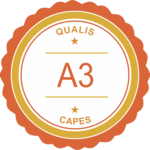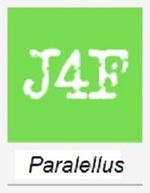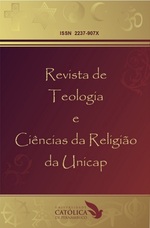WHERE IS THE WISDOM? (JOB 28:12): THE LIMITS OF HUMAN KNOWLEDGE
DOI:
https://doi.org/10.25247/paralellus.2021.v12n30.p415-432Keywords:
Ethic, The fear of the Lord, Torah, Book of Proverbs, WisdomAbstract
It is very important to know the historical development of the sapiential system in ancient Israel to understand the context of the emergence of Christianity within plural Judaism in the period of the second Temple. Thus, this article aims to investigate the sapiential crisis and its
theological and sociological repercussions not only for the 6th century BC - 1st AD, but also
for future generations. The study was carried out through bibliographic research of a qualitative
nature and with a hermeneutic focus. The research is based on biblical texts BÍBLIA (2002),
with the study of the Hebrew vocabulary in STRONG (1995), an overview on the development
of the sapiential movement in ASENSIO (2008) and the inaccessibility of wisdom in the book
of Job based on DELL's thesis (1991). The article is structured in two main moments: the development of wisdom until its identification with the Torah; the questions about accessibility
and inaccessibility of wisdom. The results obtained with the research highlight that after
realizing the accessibility of the wisdom that manifests itself both in creation (its universality)
and in its identification with the Torah (its particularity), the sages of ancient Israel, came to the conclusion that it is in the existential experience with the Lord that the human being finds wisdom.
Downloads
References
ASENSIO, Victor Morla. Livros sapienciais e outros escritos. 3ª ed. São Paulo: Ave Maria, 2008.
BÍBLIA. Português. Bíblia de Jerusalém: revista e ampliada. São Paulo: Paulus, 2002.
BRUEGGEMANN, W. Teologia do Antigo Testamento. Testemunho, disputa e defesa. Santo André: Academia Cristã – Paulus, 2014.
CERESKO, Anthony R. A sabedoria no Antigo Testamento: espiritualidade libertadora. São Paulo: Paulus, 2004.
DELL, Katharine. The book of Job as Sceptical Literature. Berlin; New York: Walter de Gruyter, 1991.
FOX, Michael V. Proverbs 1–9: a new translation with introduction and commentary. New Heaven: Yale University Press, 2000.
GILBERT, M e ALETTI, J-N. A Sabedoria e Jesus Cristo. São Paulo: Paulinas, 1985. Cadernos Bíblicos 32
GUNNEWEG, A. H. J. Teologia Bíblica do Antigo do Testamento: uma história da religião de Israel nas perspectiva bíblico-teológica: São Paulo: Loyola, 2005
NICKELSBURG, George W. E. Ancient Judaism and Christian Origins: Diversity, Continuity and Transformation. Minneapolis: Fortress Press, 2003.
SÆBØ, Magne. חכם ḥkm Ser sabio. In: JENNI, Ernst (Ed.). Diccionario Teológico Manual del Antiguo Testamento: Tomo I: אָב’ āb – מָתַי mātay. Madrid: Ediciones Cristiandad, 1985.
SCHWIENHORST-SCHÖNBERGER, L. Um caminho através do sofrimento. O livro de Jó. São Paulo: Paulus, 2011.
SILVA, Valmor da. O caminho da justiça na sabedoria dos provérbios. São Paulo: Paulus, 2019. Livro eletrônico.
STRONG, James. Hebrew and Aramaic Dictionary of the Old Testament. In: New Strong’s Exhaustive Concordance. Nashville: Thomas Nelson Publishers, 1995.
VALERIO, Hanzel José Zúñiga. Qohelet: sabiduría irreverente. Acercamientos históricos, culturales y filosóficos. San José, Costa Rica: Escuela de Ciencias Bíblicas, UBL, 2018. Revista Aportes Bíblicos No. 25 (Suplemento).
Downloads
Published
Issue
Section
License
Copyright (c) 2021 Aíla Luzia Pinheiro de Andrade, Augusto Lívio Nogueira de Morais

This work is licensed under a Creative Commons Attribution 4.0 International License.
A submissão de originais para a Paralellus implica a transferência, pelos autores, dos direitos de publicação eletrônica. Os direitos autorais para os artigos veiculados neste periódico são do autor; todavia, são da revista os direitos sobre a primeira publicação. Os autores somente poderão fazer uso dos mesmos resultados em outras publicações se indicarem, claramente, que a Paralellus foi o meio originalmente utilizado. Em decorrência do fato de ser a Paralellus uma revista de acesso público, é permitida a utilização gratuita dos artigos em aplicações educacionais e/ou científicas não comerciais, desde que respeitando-se a exigência de citação da fonte (Texto atualizado em 16-11-2020).


















